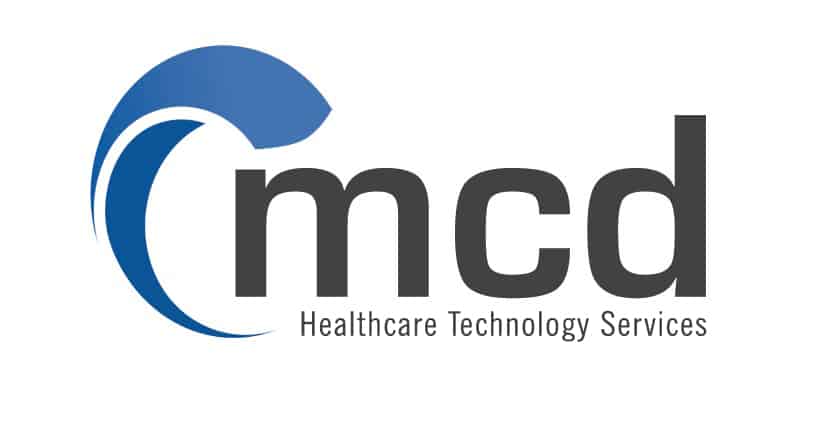Vitrectomy Surgery
Vitrectomy Surgery
What is vitrectomy?
Vitrectomy is a type of eye surgery performed to treat various problems with the retina and vitreous. During surgery, your surgeon removes the vitreous and replaces it with another solution. Especially, the vitreous is a gel-like substance that fills the middle of your eye.
Also, the retina is a layer of cells at the back of your eye. Particularly, these cells use light to send visual information to your brain. Normally, the vitreous should be transparent so that light can pass through your eye and reach your retina.
Especially, some problems can cause blood and debris to block this light. Scar tissue in your vitreous can also dislocate or tear your retina. Therefore, all this can distort the view. Surgeons sometimes perform a vitrectomy for a detached retina. Generally, removing the vitreous provides better access to your retina and reduces tension on your retina.
During a vitrectomy, your eye surgeon (called an ophthalmologist) uses small instruments to cut and suction the vitreous. Your eye surgeon will then make other necessary repairs, such as repairing a hole in your retina. Especially, your doctor may place air or another gas in your eye to help keep the retina in the proper position.
Why might I need a vitrectomy?
Especially, you may need a vitrectomy if you have one of the following eye problems:
- Diabetic retinopathy complication such as bleeding and tractional retinal detachment.
- Retinal detachment.
- Vitreous hemorrhage.
- Infection inside the eye.
- Severe eye injury.
- A hole (macula) in the middle of your retina.
- Epiretinal membrane.
- Also, some problems after cataract surgery.
Problems related to previous eye operation
Generally, all these medical problems can cause vision loss. If left untreated, some can even cause blindness. Also, in some cases, vitrectomy can restore lost vision. A vitrectomy may be require in an emergency. For example, an eye injury. In other cases, your eye doctor may plan your vitrectomy ahead of time.
Particularly, if you have a tears in retina, you may have laser therapy. However, if you have a complex retinal detachment or if your eye condition has caused bleeding in the vitreous, you may need a vitrectomy. Consult your eye doctor about the benefits and risks of all your treatment options.
What are the risks of vitrectomy?
Most people are successfully treat with vitrectomy, but sometimes complications can occur. Especially, your risks may depend on your age, medical condition, and the characteristics of your eye problem.
Some risks of the procedure include:
- Infection.
- Excessive bleeding.
- High pressure in the eye.
- Recurrence due to proliferative vitreo retinopathy (excess tissue repair membranes).
- Lens damage.
- Increased rate of cataract formation.
- Problems with eye movement after surgery
- Change in refractive error.
Also, there is a risk that surgery will not successfully repair your original problem. In this case, repeat surgery may be require.
How do I prepare for a vitrectomy?
Especially, ask your eye doctor what you should do to prepare for vitrectomy surgery. Also, ask if you need to stop taking any medication before the procedure. Especially, you will need to avoid eating anything after midnight the night before the surgery.
Moreover, your eye doctor may want to use special instruments to shine light into your eye and examine your retina. You may need to enlarge your eyes for your eye exam. You may also have an eye ultrasound that helps your eye doctor see the retina.
What happens during vitrectomy?
Talk to your eye doctor about what to expect during your surgery. Also, the details of the surgery may be slightly different. Especially, your surgery will be perform by a doctor with special retina trained in eye surgery.
In general, you can expect the following:
In other cases, you may have anesthesia to put you to sleep. You will have a deep sleep during the operation and you will not remember afterwards.
Your eye doctor will…
- Expose your eye by making an incision in the outer layer of your eye.
- Make a small incision in the sclera, the white part of your eye.
- Remove the vitreous and any scar tissue or foreign material.
- Make other repairs to your eye as needed. For example, your doctor may use a laser to fix tears in your retina. In some cases, your eye surgeon may inject a gas bubble into your eye to help hold your retina in place.
- Replace the vitreous with another liquid, such as silicone oil or saline.
- Your ophthalmologist may close your surgical incisions with stitches, but the stitches are usually unnecessary.
- An antibiotic ointment will be place in your eye to help prevent infection.
- Your eye will be cover with a protective tape.
What happens after vitrectomy?
You may be awake during the surgery. You may be given a medicine to help you relax. In this case, your eye doctor may use anesthetic (numbing) eye drops and injections to make sure you don’t feel anything.
Ask your eye doctor what to expect after surgery. In most cases, you can go home the same day. Plan to have someone drive you home after the procedure.
Be sure to follow your eye doctor’s instructions for eye care. You may need to take antibiotic eye drops to help prevent infection. Your eye may ache a little after the procedure, but you should take over-the-counter pain relievers. You may need to wear an eye patch for a day or so.
If a gas bubble was place in your eye during your vitrectomy, you will need to follow certain instructions regarding positioning after surgery. Therefore, you will also need to avoid air travel or to travel high altitude for a while after the procedure to avoid complications. Also, ask your eye doctor when it will be safe for you to fly or travel to high altitude again.
Especially, you may need to follow up closely with your eye doctor to see if the procedure is effective. You may have an appointment scheduled the day after the procedure. Be sure to tell your eye doctor right away if you have decreased vision or increased pain or swelling around the eyes. Moreover, if silicone oil is injected into your eye during surgery, additional surgery should be require to eventually remove it from your eye.
Your vision may not be completely normal after your vitrectomy. Especially if your condition has caused permanent damage to your retina. Also, ask your eye doctor how much improvement you can expect.
Next steps
Before accepting the test or procedure, make sure you know:
- Name of the test or procedure.
- The reason you had the test or procedure.
- What results are expected and what they mean.
- Risks and benefits of the test or procedure.
- What are the possible side effects or complications?
- When and where to have the test or procedure.
- Who will do the test or procedure and what are the qualifications of this person?
- What if you didn’t have the test or procedure?
- Any alternative tests or procedures that should be considered.
- When and how will you get the results?
- Who can you call after the test or procedure if you have questions or problems?
- How much will you have to pay for the test or procedure?
Argon Laser Photocoagulation Treatment
Argon laser photocoagulation is a treatment method that has been used for many years in the adhesion of retinal tears, in the treatment of advanced diabetes-related retinopathy, in the treatment of retinal areas that cannot be fed (ischemia) due to retinal vein occlusion, and in some macular (yellow spot) edemas. In the treatment of argon laser photocoagulation, burns are created in the very small damaged retinal areas. This treatment is apply in outpatient clinic conditions. While one session is usually enough to apply in retinal tear treatments, several sessions of laser treatment are require in cases of diabetes-related retinopathy.
Argon laser photocoagulation is most often use to stabilize vision and prevent future vision loss rather than to improve vision loss that has already occurred in diabetic or retinal vein occlusion patients.
There are some kind of procedure to treat diabetic retinopathy with laser photocoagulation. One is focal and the other is pan-retinal type. Focal treatment is using to seal specific leaking blood vessels in a small area of the retina, usually near the macula. Pan retinal treatment is using to slow the growth of new abnormal blood vessels that have developed over a wide area of the retina. The ophthalmologist may make 600-700 of laser burns in each session on the retina to stop the blood vessels from growing.
Useful Links
About Eye Uveal Melanoma – Eye Cancer Treatment. About Keratoplasty Surgery Diabetic Retinopathy Disease. Macular Degeneration Treatments. Periodic Eye Examinations. Vitrectomy Definition (AAO)
Your Expert Eye Surgeon

Education Information:
He completed his primary, secondary and high school education in Ankara. Fevzi Senturk graduated from Ankara University Faculty of Medicine with a degree in 1994, and subsequently received his Ophthalmology Specialization training from Eskisehir Osmangazi University Faculty of Medicine in 2000. Afterwards, Fevzi Senturk completed his Retina Fellowship at Istanbul Retina Institute and earned the title of Associate Professor at this institution. He is still continuing his academic career by taking the title of Professor at Istanbul Medipol University. He has focused his scientific and clinical studies on retinal diseases, Vitreoretinal surgery and cataract surgery.Awards,Memberships and Scientific Research:
- Retinal capillary hemangioma: AB interno surgical excision, 43rd National Congress Awards, Best Video First Prize, 2009
- Photodynamic therapy guided by indocyanine green angiography in chronic central serous chorioretinopathy, Turkish Journal of Ophthalmology, Best Publication Third Prize, 2000
- Retinal capillary hemangioma: AB interno surgical excision, 43rd National Congress Awards, Best Video First Prize, 2009
- Photodynamic therapy guided by indocyanine green angiography in chronic central serous chorioretinopathy, Turkish Journal of Ophthalmology, Best Publication Third Prize, 2000
- Vitreoretinal Surgery Techniques, Second Edition, Hayat Medicine Bookstore, 2008
- Eye Diseases and Anti-VEGF Therapy 2010.
- Ocular Electrophysiology (TOD Education Publications No 13) Meaning of VEP, VEP registration and parameters in ISCEV standards., 2011
- Clinical Eye Atlas (Oxford Atlases in Ophthalmology), 2012
- Imaging in Ophthalmology, Microperimetry, 2013
- Ocular Electrophysiology (TOD Education Publications 1st Edition), Multifocal Electroretinogram Recording and Evaluation, 2022.
- Current Vitreoretinal Surgery (TOD Education Publications), Surgical Anatomy of the Retinal and Vitreous, 2022.
- Turkish Medical Association
- Turkish Ophthalmology Association
- Turkic Republics Ophthalmology Association
- Electrodiagnostic unit board membership
- Electrodiagnostic unit training representative
- International Society for Clinical Electrophysiology of Vision (ISCEV)
Specialized Treatments and Surgeries:
- Macular Degeneration Disease and Treatments
- Retinal Detachment Treatments
- Retinal Hemorrhages Due to Diabetes and Hypertension and Their Treatments
- Retinitis Pigmentosa Treatments
- Central Serous Chorioretinopathy
- Retinal Vascular Occlusions
- Epirentinal Membrane
- Macular Hole
- Glaucoma eye pressure
- Neuroophthalmological Diseases
- Vitrectomy-Retina Surgery
- Intravitreal Injection Treatments
- Argon Laser Photocoagulation Treatment
- Photodynamic Therapies
Foreign language:
- English
MEDICAL UNIVERSITY of Ankara
28 Years of Experience
>25.000 Surgery
Definitely avoid low-cost Vitrectomy Surgery
You may think that a cheap vitrectomy surgery is right for you. This might be fine if you're buying a cheap TV, but it's not worth the gamble with your eyesight. But as you know, having cheap eye surgery means sacrificing technology, physician quality, medical care and sterile conditions, and most importantly, taking risks. The issues that fall on a patient who wants to have cataract surgery and should pay the most attention; The hospital with the latest technology in cataract surgery and imaging devices, a sterile environment, and an experienced doctor and clinical team should be selected. We would like to remind all our patients that they only have two eyes and that the most important and most sensitive sense organ is their eyes.
None of these things are more important than your eye health, and we do not compromise on quality and cutting-edge technology. We offer you our prices in a very understandable, fair and affordable way.
There are no hidden costs in our pricing. We make vitrectomy surgery affordable for you.






